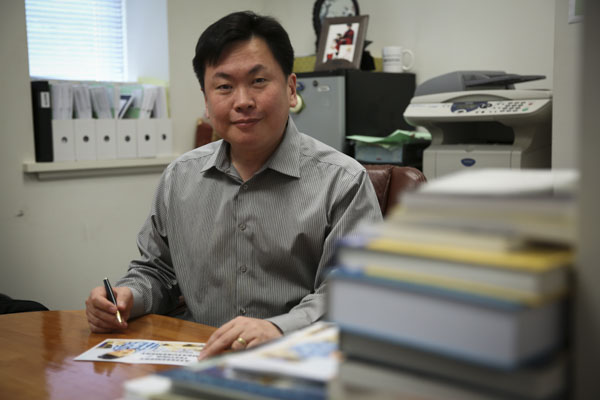Fewer students are enrolling in GW’s graduate certificate programs, but officials say it’s not a problem.
Since 2010, enrollment in GW’s graduate certificate programs has declined by about 30 percent for on-campus programs and by about 50 percent for off-campus programs. While certificate programs only make up a small chunk of GW’s overall revenue, faculty said they bring educational diversity to a university by creating specialized programs for a small number of students.
Interim Provost Forrest Maltzman said while these programs generate some revenue for the University, it is an extremely small percentage of the overall income. Most of the University’s revenue comes from tuition for regular degree programs – like doctoral, master’s and bachelor’s degrees.
“It’s helpful, and every little bit helps,” Maltzman said. “But this is not something that we count on, or a very significant contributor to our overall revenue base right now, and I don’t think it’s likely to either.”
Graduate certificate programs are typically small: Only 602 total students enrolled in GW’s certificate programs in 2015. About half of the 87 certificate programs are offered on campus, and the other half are offered at GW’s other campuses or online. A few hybrid programs also combine both in-person and online sessions.
Maltzman added that students often take certificate skills to to show an employer without having to take classes to earn full degrees.
“I do think it’s part of our mission,” Maltzman said. “So that students can go and tell their employer that they’ve gotten a new degree in x or x or whatever it is and earn a certificate in x and x, and that’s why we do it.”
In one of the biggest drops, off-campus certificate enrollment declined in the Graduate School of Education and Human Development by about 30 percent between 2014 and 2015.
Rebecca Dedmond, the director of the post-master’s certificate in counseling and an assistant professor of counseling in GSEHD, said she designed the program six years ago because graduates from GW’s master’s counseling program were going to other universities to earn the extra credit hours required to become licensed counselors.
The program, held at the Alexandria Graduate Education Center, usually enrolls eight to 12 students. Dedmond said enrollment is down slightly this year with only about six students, but the program is still a benefit for students seeking continuing education.
“We’ve just seen it as a win-win,” Dedmond said. “And even though it’s not a large program and it certainly doesn’t cost much, the courses fill quickly, and it’s just been a very good option.”
Nuala Cowan, the director of the Geographical Information Systems certificate program in the Columbian College of Arts and Sciences, said while her program is new, it is popular because employers like to see a graduate qualifications in GIS. She said directing a small certificate program is an advantage for its faculty and students.
“It’s a nice, manageable size, and it’s been growing,” Cowan said. “Because we’re a small program, a lot of students reach out to me directly. We don’t have such an unwieldy number that I can’t spend time with them individually.”
She added that sometimes students have trouble paying for these certificate programs because many aren’t covered by federal loans. Cowan said she’s seen students accepted to her program only to have to withdraw because of their financial situation.
“I know we have lost some people because of that, people who wanted to do the program,” Cowan said. “But then there are some people as well who we were actually able to encourage to come and join our master’s program.”







